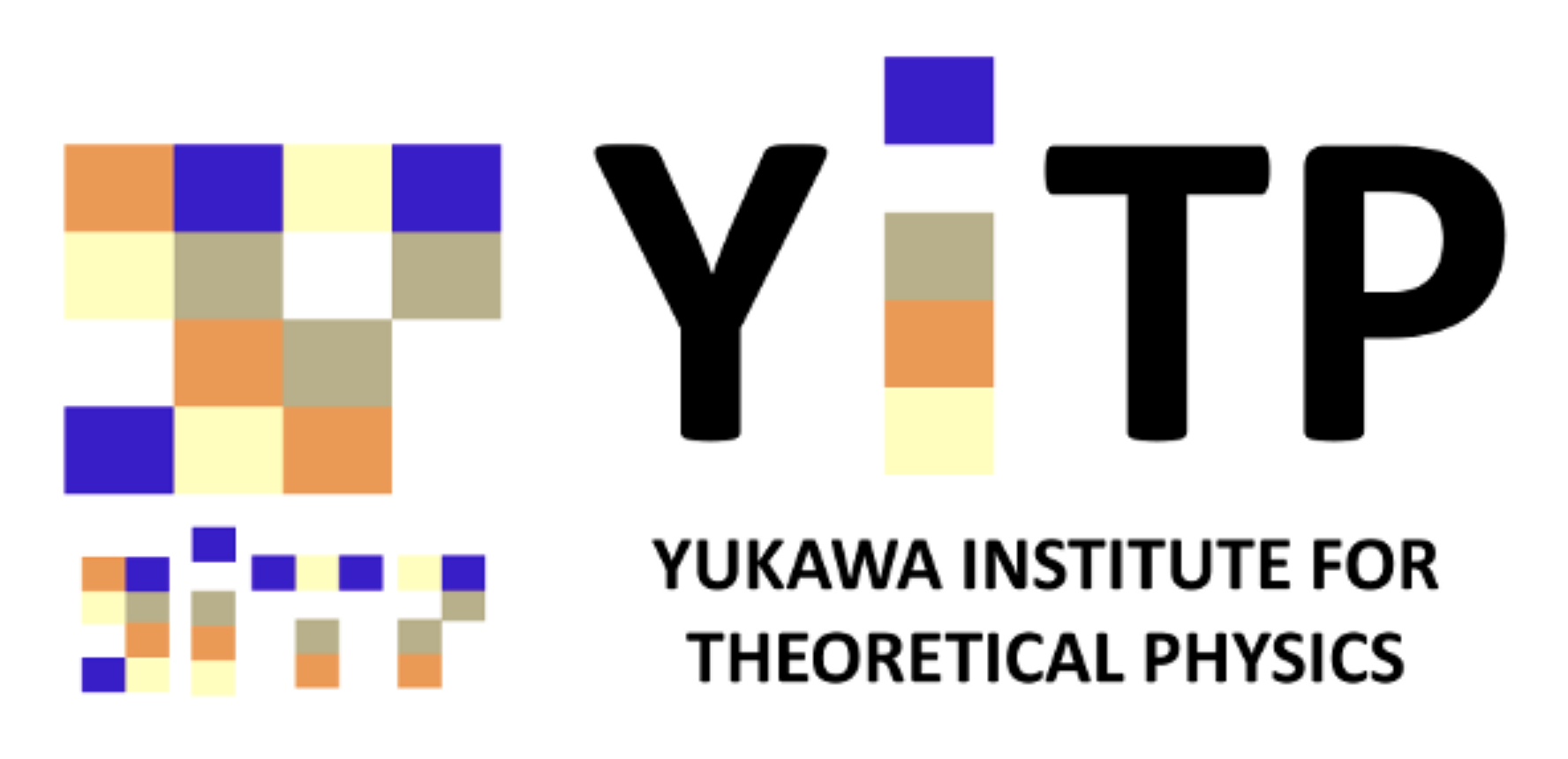Registration Deadline: TBA
Date:
4th - 8th March 2019
Venue:
Yukawa Institute for Theoretical Physics, Kyoto University (how to get there)
Scientific Rationale:
Dark matter is responsible for the formation of cosmic structures such as galaxies in the Universe, while dark energy is responsible for the accelerated expansion in the Universe. Dark matter and dark energy make up about 95% of our Universe. What are dark matter and dark energy? Or is the cosmic acceleration due to breakdown of the Einstein’s gravity theory on cosmological scales? The nature of these dark components is the most profound mystery in physics and cosmology.
Large-scale structure (LSS) is a powerful cosmological tool to study the distribution of dark matter as well as explore the nature of dark energy. There are various promising LSS methods: weak gravitational lensing, galaxy clustering, redshift-space distortion effects, clusters of galaxies and eventually 21cm cosmology. To have high-precision measurements of these LSS probes, there are a number of ongoing and planned projects aimed at unveiling the nature of the dark components. However, in order to attain the full potential of these projects, scientists need to resolve a number of statistical, computational and theoretical challenges in LSS. The aim of this conference is to gather experts in LSS, both in theory and from various collaborations, to understand the current status of LSS methods and data as well as discuss the roles of future surveys.
Main Topics:
- Dark Matter and Dark Energy
- Inflation
- Modification of gravity
- Large-scale structure probes (cosmic microwave background, weak lensing, baryon acoustic oscillations, redshift-space distortion, 21cm)
- Ongoing and future wide-area galaxy surveys: Subaru Hyper Suprime-Cam, Subaru Prime Focus Spectrograph, Dark Energy Survey (DES), Kilo-Square Degree survey (KiDS), DESI, LSST, Euclid, WFIRST
- Gravitational wave cosmology
We encourage especially young researchers and students to attend the conference.
Confirmed Invited Speakers :
-
Bernard Carr (Queen Mary U of London)
-
Cora Dvorkin (Harvard)
-
Tim Eifler (Arizona)
-
Xian Gao (Sun Yat-sen U.)
-
Masashi Hazumi (KEK/IPMU)
-
Hendrik Hildebrandt (Ruhr-University Bochum)
-
Chiaki Hikage (Kavli IPMU)
-
Kazuya Koyama (Portsmouth)
-
Elisabeth Krause (Arizona)
-
Hirosi Ooguri (Caltech/Kavli IPMU)
-
Yasunori Nomura (Berkeley/Kavli IPMU)
-
Valeria Pettorino (CEA Saclay)
-
Leonardo Senatore (Stanford)
-
Alexei Starobinsky (Landau Inst.)
-
Nicolas Yunes (Montana)
-
Saleem Zaroubi (Groningen)
Host:
Sponsored by
This workshop is supported in part by MEXT Grant-in-Aid for Scientific Research on Innovative Areas (15H05887, 15H05888, 15H05889, 15H05890, 15H05891, 15H05892, 15H05893, 15H05894, 15H05895, 15H05896, 15K21733).



